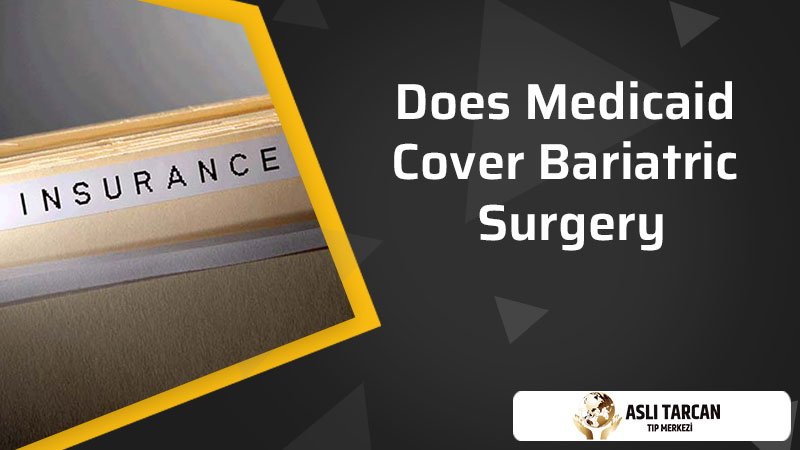Does Medicaid cover bariatric surgery is one of the most frequently asked questions of people. All obesity patients may not be able to afford bariatric surgery. Obesity is a disease that the whole world is fighting today. This disease, which was a problem only for developed countries in the past, has now become a disease that the whole world has to fight. Being overweight can be the equivalent of obesity. Overweight people have great difficulty in maintaining their lives. If a person consumes more calories than they burn each day, that person is most likely moving towards obesity. A sedentary lifestyle and unbalanced eating habits are the biggest causes of obesity in people.
Some people, on the other hand, have metabolic problems, so their digestive systems do not work well, and therefore they gain weight. But many obese patients are getting worse day by day because for some reason they devote themselves to eating and lock themselves in their rooms. Doctors measure body mass indexes to diagnose people with obesity. Body mass index is an index that is accepted all over the world.
Obesity
According to this index, you should first measure the person’s weight in kilograms and then their height in meters. Then you have to divide the weight by the length. If your result is below 30, you are not obese. If you are over 30 and below 40, you are obese. The body mass index is over 40, you are a morbid obesity patient. So, you are severely obese. This calculation is a calculation accepted all over the world. It may not be as easy as you think for morbid obesity and obesity patients to lose weight with diet and exercise. Because they have tens of kilos to lose. And their mobility is very limited. For this reason, bariatric surgery is a very logical solution for these people. Every year, many people regain their health thanks to bariatric surgeries.
Bariatric surgeries generally aim to reduce the capacity of the stomach. And they have proven their success. For this reason, many obesity patients want to have this surgery. But when it comes to any surgery or similar situation, of course, some question marks appear in people’s minds. And not everyone can afford to pay for these surgeries. There is a question that people have a lot of questions about bariatric surgery. This question also does Medicaid cover bariatric surgery. For this reason, we will first give detailed information about bariatric surgery in this article. Then we will answer the question of does Medicaid cover bariatric surgery.
Does Medicaid Cover Bariatric Surgery and Which Ones?
Let us answer the question of does Medicaid cover bariatric surgery. The surgeries it covers vary according to Medicaid capacity. But in general, Medicaid covers gastric bypass surgery, gastric sleeve surgery and lap-band surgery. In fact, these three surgeries are the most well-known among bariatric surgeries. For this reason, it is a very positive situation for patients.
What are The Bariatric Surgeries?
Before coming to the topic of does Medicaid cover bariatric surgery, let’s see what the bariatric surgeries are. You must have heard something about operations on the stomach before. People with weight problems start to eat less food thanks to these surgeries, and thus they regain their healthy weight. These operations have a general name. Bariatric surgeries combine all these surgeries I mentioned above. People can choose any of these surgeries according to their health status or preferences and achieve their healthy weight.
Moreover, it is almost impossible for obesity patients to lose weight with sports and diet. Experts say that only two out of every 100 obesity patients regain their healthy weight in this way. For this reason, bariatric surgeries are a blessing for obesity patients. In each of the surgeries included in bariatric surgeries, the operations performed on the stomach are different. For example, in one, the doctor shrinks the stomach. In another, he puts a cuff on the stomach. And in another, it reduces the capacity of the stomach by throwing a balloon into the stomach.
Although the method is different in all these surgeries, the aim is to decrease the capacity of the stomach. And each of these surgeries are successful enough in this regard. And this success convinces many obesity patients to have bariatric surgery. But some questions arise in the minds of these people. One of these questions is does Medicaid cover bariatric surgery. First, we will talk about the types of bariatric surgery. Then we will answer this question.
Gastric Bypass Surgery
Gastric Bypass surgery is one of the most well-known bariatric surgeries. Many people regain their healthy weight thanks to gastric bypass surgery. Let’s see how this surgery is done. In gastric bypass surgeries, the doctor cuts a large part of the stomach and sews the small stomach he has obtained into the small intestines. In this operation, the doctor both reduces the stomach and intervenes in the exit pipes of the stomach.
The goal here is to shrink the stomach and at the same time to disable a part of the intestines. After a part of the intestines is disabled, some of the food that people consume is thrown away without being absorbed. For this reason, people who have gastric bypass surgery lose weight quickly. Gastric bypass surgery is also performed by doctors with a closed technique like gastric sleeve surgery. The patient begins to consume solid food gradually, as in other gastric surgeries.
Gastric Sleeve Surgery
Gastric sleeve surgery is one of the most popular bariatric surgeries like gastric bypass surgery. However, there are some differences between gastric sleeve and gastric bypass surgery. In gastric sleeve surgery, the doctor does not interfere with the inlet and outlet pipes of the stomach. It cuts eighty percent of the stomach and sutures the stomach. So, there is no interference with the intestines. Gastric sleeve surgery is an operation that can be performed using a closed method, like gastric bypass surgery. The closed method makes gastric sleeve operation much more attractive. Because the recovery period for the patient is much easier. There are thousands of obesity patients who lost weight with gastric sleeve surgery.
Does Medicaid Cover Weight Loss Surgery? Get Prepared
The answer to “does Medicaid cover weight loss surgery?” is yes, it does cover weight loss surgery in certain circumstances. For instance, if it is deemed a medically necessary procedure to treat an underlying medical condition. However, the coverage varies from state to state and is also subject to individual provider’s policies. To help prepare for any possible surgeries, individuals should research their state’s Medicaid guidelines and speak with their healthcare provider regarding coverage details and any other necessary preparation steps. Additionally, it may be beneficial to work with a nutritionist and/or dietitian who can provide guidance on making lifestyle changes that would have a positive impact during the surgical process.

Taking these steps will help make sure that you are well-informed and ready in the event you decide stomach surgery for weight loss is the right decision for you. Ultimately, it is important to do your research on “does Medicaid cover weight loss surgery?” before deciding to understand if weight loss surgery is the right choice for your health needs. It is also important to research the types of weight loss surgeries available and which ones are most effective and safest for you personally before submitting your coverage application.



